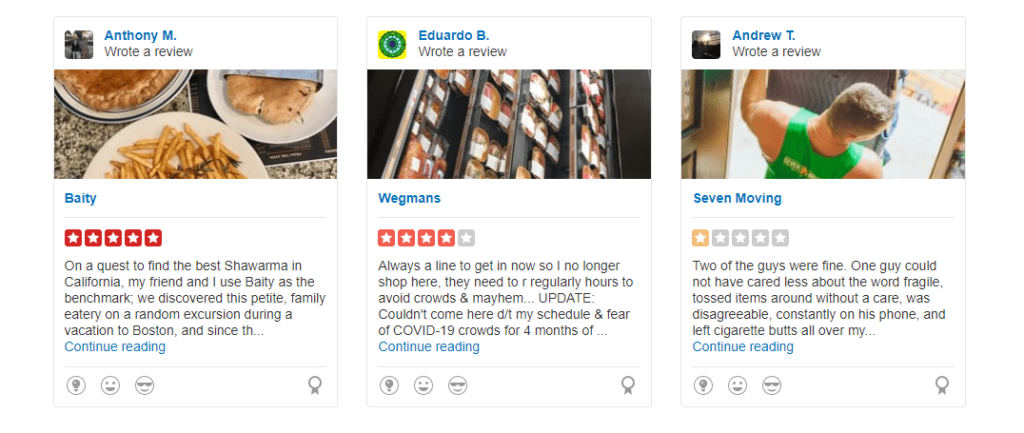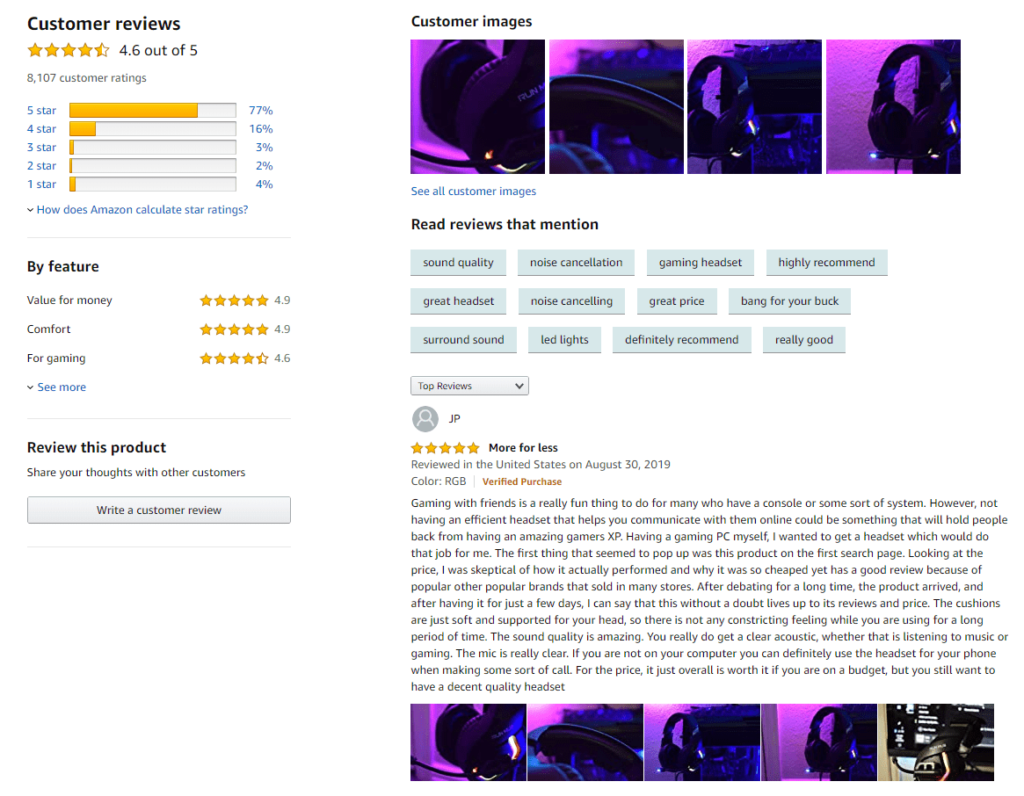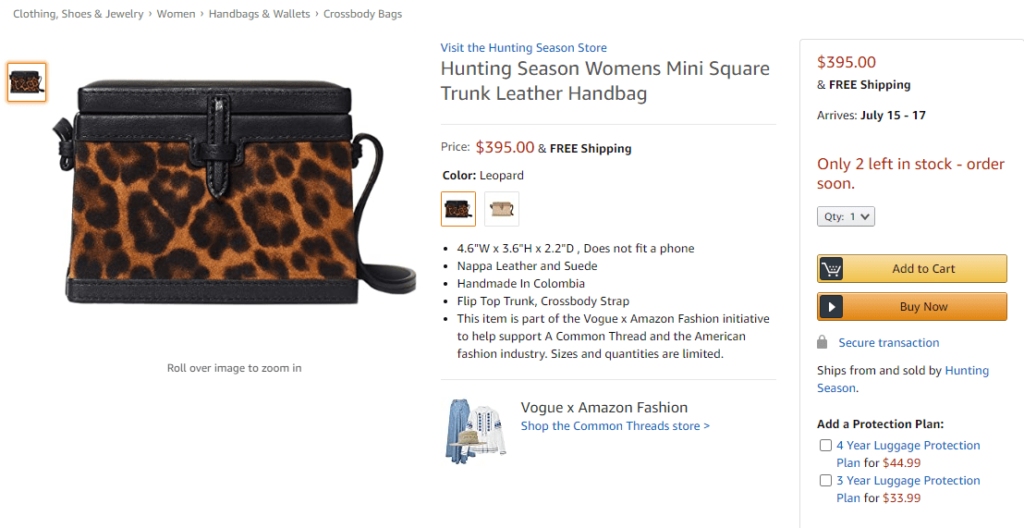Flashback when you go shopping, whether it’s offline or online, would you prefer to buy a product with no reviews over a highly-interested one with many recommendations and star ratings?
The majority go to the second option, of course, as we’re social beings who are persuaded by others’ actions and real proof than anything else. It’s so-called a psychological phenomenon, but also evidently proved that 92% of online shoppers refer to a product review before making a purchase and 83% of people trust reviews over advertising.
In the eCommerce landscape, it’s social proof – a powerful marketing technique that helps brands sell fast. In this article, we’ll dive into practical ways to leverage social proof in eCommerce marketing. But first, let’s go through the definition and different types of social proof.
What Is Social Proof in eCommerce Marketing?
Social proof is not a new term. Robert Cialdini first introduced the principle of social proof in 1984 in the book: Influence: The Psychology of Persuasion. It stated that “we determine what is correct by figuring out what other people think is correct.” It causes the tendency to see action more appropriate as many people are doing it, and we’ll avoid mistakes if doing in accord with the crowds.
Simply put, social proof is a form of conformity in which people look at others’ actions for clues when they’re not sure what to do. They trust others’ actions and take it as a correct way of behavior.
Marketing experts know the importance of social proof to their eCommerce success and use it as a powerful weapon to influence customers’ behavior. By giving more credits to the products or any content of the website, businesses can increase their online presence’s credibility and build customer trust.
From another perspective, it’s also helpful to customers in terms of shopping decisions. In case they’re unsure of what to buy, previous buyers’ opinions will be a great source of information for them to decide their purchase. Especially those who are unfamiliar with a specific brand, need this kind of reference. Because of this, social proof is a useful conversion driver.

When first getting into social proof and searching for popular ones, you probably think that this marketing technique’s potential and use might be limited as it depends much on others, like customers’ reviews. Everything seems to be out of your hand easily, and even it’s hard to make people spread kind words about your brand.
However, there are different types of social proof that eCommerce marketers can use to drive more conversions. Here are some typical forms of social proof:
6 Types of Social Proof:
- Customer reviews: get reviews from your existing customers about what they’ve purchased. It can also be case studies or testimonials.
- Experts: it’s social proof from the experts in the industry your business belongs to. Words from those who have high prestige and qualification in a specific field will be more persuasive to buyers.
- Celebrities: celebrities or influencers who buy your products and leave their reviews, which can be featured on your website or their social media accounts. It’s so-called influencer marketing.
- Crowds: you showcase a large number of people who visit your stores, buy your products, or have any actions you want people to perform when they see those numbers.
- Friends referrals: you might come across some websites and see this line “100 of your friends like this page” or “3 of your friends also bought this product.” It’s social proof from friends of your visitors/users.
- Certifications: get certified by a credible and influential third party or an evaluation council in your industry to define your knowledge, quality, and trustworthiness. You can showcase them on your website or add them to your social profiles (e.g., Magento 2 certified solution specialist).
Social proof manifests itself, so there are some more forms of social proof that you might never have heard before. But by using the list mentioned above, you can amplify your products’ credibility, high quality, and your brand. Besides, you can use tools specifically designed to help you generate and display your proofs on your site more easily. Some famous names are TrustPulse, WPForms, SocialProve, or Social Proof – Photo Reviews.
Now that you already know the fundamentals of social proof in eCommerce marketing let’s get yourself covered how to use social proof in more detail.
Ways to Use Social Proof in eCommerce Marketing
Showcase Customers’ Reviews and Ratings
Customers’ reviews are one of the most valuable resources that any eCommerce website should deploy and take advantage of it. Usually, reviews and ratings are shown alongside or under the products so that they can reach customers right when they’re going through the consideration step, or still doubt about the products.
Here’s how Amazon utilizes customers’ reviews on its products. Adding the personal reviews put together with star ratings and product photos self-taken by customers, this social proof becomes more authentic and trustworthy.

Create a Sense of Urgency
Displaying scarcity will provoke a fear of missing out (FOMO) inside customers. Thus, real-time stats that show product stock or the number of sold items are effective to catch customers’ attention and stop them from passing your website. This psychological phenomenon has already been proved that if something is rare or unattainable, we want it more.
If visitors see the number of products shown on your website is limited or low, they will think that many people are buying that product and conclude that it’s okay. They will start considering to purchase before it’s out of stock; otherwise, they’ll miss the chance to get the favorite item they have their eye on.
Anyone has made purchases online, especially on Amazon, must be familiar with the message “Only x left in stock” or “Only a few left.” These messages show the quantity scarcity of products that captivate customers and nudge them to purchase right away.

Use Case Studies
Case studies are long-form social proof that brands attempt to deliver customers’ stories behind the products they used. This way provides high authority social proof as it’s not a brand that speaks for themselves but customers who share their experiences with the brand.
Honestly, stories and examples are way more trustworthy and appealing than statistics as they’re easier to stick on people’s minds and touch their hearts. Let your customers tell and share their own stories and testimonials, but don’t forget to ask them to describe the experience both before and after using your products. It’s better if they open up about why they choose you and how your products solve their problems. Because of this, you can tap into target customers’ concerns in a genuine way.
Patagonia Worn Wear Stories page to highlight customers’ stories and adventures using their products is one of the best examples of using case studies and testimonials.

Display On-Site Activities
Aside from using case studies and testimonials, you can also display on-site activities to diversify your social proof. On-site activities are actions that visitors do when they are browsing your website. Those activities can be viewing certain products, adding items to cart, purchasing, or reviewing. They can be displayed as a pop-up or put alongside product descriptions.
Besides, you can also show real-time statistics and notifications such as “A customer from the USA purchased this item 2 hours ago,” which reflects the customers’ activities on your website more truthfully. For this type of social proof, I recommend Avada Proofo – Social Proof, which offers different features, including purchase notice, add-to-cart notice, live visitor count for every page, and many more.

(Source: Vienzi)
Show Certifications and Trust Badges
Showing certificates and trust badges effectively tells customers that you are qualified in a specific industry. If you have any certifications, don’t keep it yourself. It’s not something bad to show them off. However, remember to show the real and most valuable ones.

Create Interest With “Best Seller”
Another way to increase social proof is by using the “Best Seller” label. Show products with high demand and record a high volume of sales. People who visit your stores will think that the products have such good quality or something similar that many people want them. Visitors will check them out and consider purchasing.

Ask Experts’ Reviews
Last but not least, having reviews from an expert who is highly respected and has the authority to state facts about a particular field, is incredibly useful for your social proof. Customers who are unfamiliar with your brand and products will be more likely to have doubts about what is shown in front of their eyes. Expert’s reviews, in this case, build more credibility and help them make purchase decisions with fewer reservations.
Final Words
Social proof is a powerful means of eCommerce marketing. You can stimulate customers’ engagement, increase conversions, and boost sales effectively with the right social proof types. Now it’s time to stop praising your goods to the skies and show evidence that people should check them out. It’s crucial to choose the right forms of social proof for your site and ensure transparency.
DepositPhotos – e-commerce marketing


